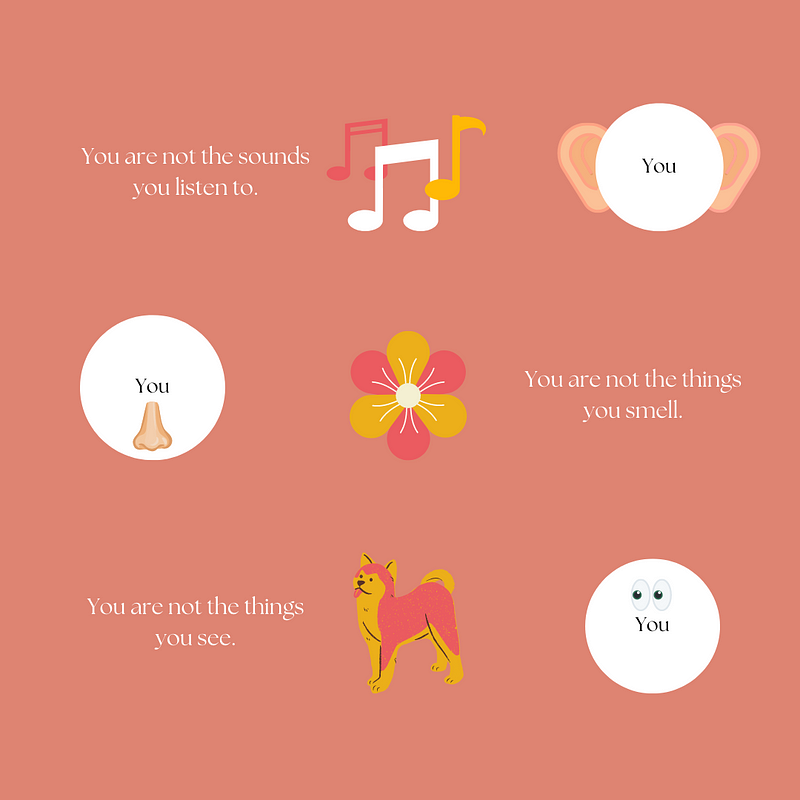Understanding the Inner Dialogue: A Journey to Self-Awareness
Written on
Chapter 1: The Inner Voice
Have you ever taken note of the voice that plays in your mind? This continuous narrative shapes how we perceive the world, constructing dialogues and thoughts that can feel overwhelming at times.
To illustrate this, try this exercise: think the word "balloon" quietly in your head. Now, say it out loud, "balloon." Now, yell it: "BALLOON!" That inner dialogue is unmistakably present, isn't it? In this article, I want to share insights I’ve gained about this inner voice, insights that have provided me with a sense of tranquility. My hope is that they may be equally beneficial to you.
What We Will Explore:
- What constitutes this inner voice?
- Why does it constantly narrate our experiences and engage in conversations?
- What is its ultimate purpose?
- Does this voice actually belong to me?
Section 1.1: Defining the Inner Voice
Michael Singer describes this inner voice as a form of internal energy that seeks release. Let me provide an example to clarify this concept.
Imagine you have an important presentation coming up. Your inner voice might be rehearsing your lines repeatedly: "I'm going to excel," it says. But soon it spirals into worries: "What if I mess up? I could lose my job and end up homeless."
Notice how quickly the tone shifts from confidence to despair? This voice seeks to expel pent-up energy, particularly when we feel anxious. Yet, even when we’re at ease, this voice continues its chatter. Let's delve into why.
Section 1.2: The Narration of Everyday Life
Let's examine common scenarios where this voice tends to pop up.
Conversations:
That was so awkward; why did I say that? I thought I knew the answer, but clearly, I didn’t. Next time, I should just keep quiet. But what if I actually do know it? I want to contribute, yet I risk embarrassing myself again...
This voice often plays both sides of the dialogue. But if it’s the same voice arguing with itself, is there any resolution to be found?

It’s primarily on a quest for safety, seeking validation for your feelings—whether that means deciding not to speak up again or downplaying the embarrassment.
Narrations:
Imagine you're strolling through a park. "Look at that adorable dog!" you might think. "What a massive tree! Oh, the traffic lights are still red."
Why does this voice feel compelled to narrate the obvious? It serves to create a connection with your surroundings, transforming a mere dog into "the cute dog I saw." This connection fosters comfort, but why do we seek closeness to external entities?
Chapter 2: The Purpose of the Inner Voice
You have little control over the external world; for instance, whether it rains or not is beyond your influence. Your thoughts about it won’t change reality. Yet, the voice still comments on your state of mind.
"I'm exhausted. If only my house weren’t so far away..." The voice reassures you: "Don’t worry; we’re almost home. Soon you can relax on the couch and enjoy a movie."
Notice how it creates comfort by fabricating a world where you feel more in control? However, these thoughts are just that—thoughts. They have no real impact on the world outside.
Section 2.1: Ownership of the Inner Voice
As we become aware of this voice, it’s essential to recognize that its commentary can often be nonsensical and overwhelming. We sometimes mistakenly identify with it, believing it represents our thoughts. But is that really the case? Are you defined by the music you enjoy or the sights you take in? No, you are the observer experiencing those stimuli. The same applies to this voice.

The first step toward personal growth is realizing that you are not the voice in your head; you are the one who listens to it.
In my next article, I’ll discuss the second step: learning to detach from this inner dialogue. Thank you for taking the time to explore this topic with me! I hope my insights resonate with you. Feel free to share your thoughts or experiences on this journey.
Have a wonderful day!
This video explores the nature of the inner voice and its impact on our lives.
In this video, discover why some individuals lack an internal monologue and what it means for self-awareness.